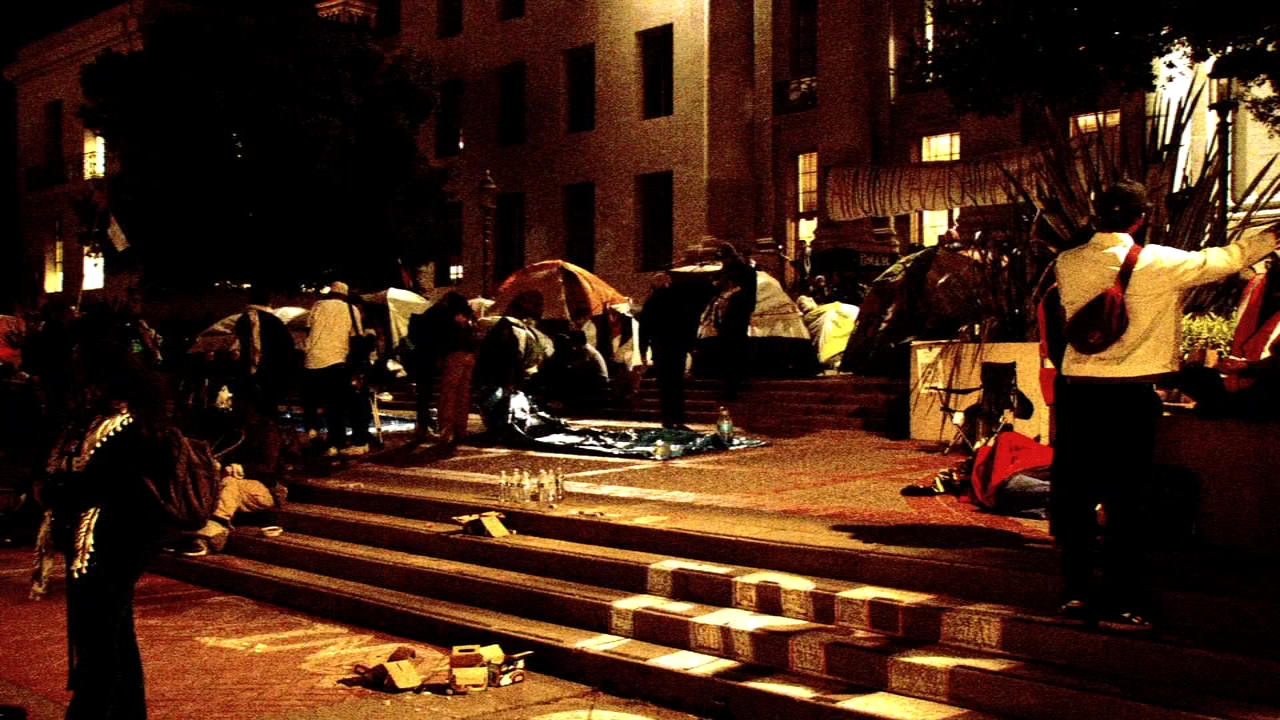'Sicker the second time': Here's how COVID-19 reinfection may impact immunity, vaccine development
SAN FRANCISCO (KGO) -- A Nevada man was infected twice with COVID-19 and is the first recorded case in the United States, medical experts say. However, this infection raises serious questions about how long immunity and antibodies can last.
The 25-year-old essential worker first tested positive in March, then tested positive again two months later after visiting relatives, Dr. Peter Chin-Hong said. On ABC7 News at 3 p.m., we spoke to the infectious disease specialist to get answers on how his case impacts vaccine development and immunity.
The Nevada man was reinfected with COVID-19 months ago, why are we talking about this now?
"I think the difference within why it's reaching attention now is because it's been peer-reviewed," Dr. Chin-Hong said. "People don't want to say it's reinfection without having and looking at all this scientific evidence. This is a difference between sort of heresy and confirmed science. So I think it's really an instructive case, really, for all of us."
How do we know the man was reinfected twice, did he have another strain?
Dr. Chin-Hong says the strains were "slightly different, but not different enough."
"The reason why they know it was a separate infection is that they did genetic analyses on both of them and they were both different. And he was sicker the second time around," Dr. Chin Hong added.
How does this impact virus immunity?
You have some immunity to the coronavirus if you've already had it, but how much and for how long are big unanswered questions.
"We think that it was very slightly different but not different enough so that his existing immunity wouldn't have been effective if it were in place. The most likely explanation is that his immunity waned. And that's coming back to what scientists think, it's really unpredictable if you get COVID the first time how long that immunity would last."
Antibodies naturally wane over time, but they are only one piece of the body's defenses. Other parts of the immune system can provide some protection too, and scientists are studying how they kick in with the coronavirus.
Based on the Nevada case, Dr. Peter Chin-Hong warns that he would be "very afraid" to go against the world and think that he's immune once infected with COVID-19. He reminds us that you may get infected again and it's variable in different people on how long immunity will last. He warns that you may get "sicker the second time."
VIDEO: Coronavirus Testing: What is a COVID-19 genetic, antigen and antibody test?

How does the reinfection case impact the development of a COVID-19 vaccine?
The reinfection case doesn't mean that vaccines won't work.
Dr. Chin-Hong says, "I think most people think the vaccine-induced immunity is going to be more durable than infection, natural infection. For example, human papillomavirus, you can get it over and over again, but the vaccine gives more than 95% efficacy. Similarly, with COVID-19, we think that the vaccine is going to be better than natural exposure."
RELATED: Pres. Trump insists he's 'immune' from coronavirus, a claim that's impossible to prove
What's the latest developments on a COVID-19 vaccine?
On Monday, Johnson & Johnson paused its vaccine trial due to an "unexplained illness." Dr. Chin-Hong added that it means that there was some illness that needs to be investigated.
"We don't know the details, but hopefully you'll be in a placebo group because with 60,000 people, somebody's bound to get sick at some point and you just want to be cautious and make sure it's not linked to the vaccine." He added that when testing a large number of people, there are going to be roadblocks and stopping to investigate is part of the process.
Dr. Chin-Hong believes "there's no way that we will be able to have a vaccine by the end of the year." He's optimistic and says there are many "great candidates" in the running.
Watch the full interview with Dr. Peter Chin-Hong in the media player above.
AP contributed to this report.
App users: For a better experience, click here to view the graph in a new window.
If you have a question or comment about the coronavirus pandemic, submit yours via the form below or here.
Get the latest news, information and videos about the novel coronavirus pandemic here RELATED STORIES & VIDEOS:
- Map: CA counties that can, can't reopen under new rules
- Updated number of COVID-19 deaths, cases in Bay Area
- COVID-19 Help: Comprehensive list of resources, information
- California EDD: The most commonly asked questions we get about unemployment and PUA
- How to tell the difference between seasonal allergies and coronavirus symptoms
- Here's which mask is better to protect from COVID-19
- First COVID-19 vaccine volunteers in US describe experience as Bay Area launches vaccine trials
- From salons to dinner parties:Experts rate the risk of 12 activities
- Coronavirus origin: Where did COVID-19 come from?
- What is a COVID-19 genetic, antigen and antibody test?
- What will it take to get aCOVID-19 vaccine and how will it be made?
- What does COVID-19 do to your body and why does it spread so easily?
- Here's how shelter in place, stay at home orders can slow spread of COVID-19
- Coronavirus Timeline: Tracking major moments of COVID-19 pandemic in San Francisco Bay Area
- COVID-19Diaries: Personal stories of Bay Area residents during novel coronavirus pandemic
- Coronavirus Doctor's Note: Dr. Alok Patel gives his insight into COVID-19 pandemic









